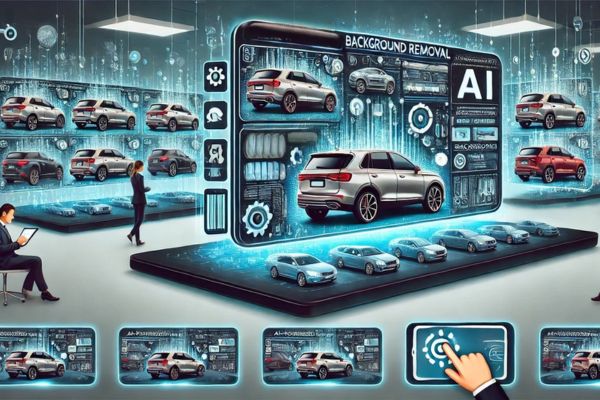The global used car market is experiencing rapid growth, driven by factors such as rising consumer preference for cost-effective mobility, economic uncertainties affecting new car purchases, and supply chain disruptions in the automotive industry. According to a recent CARS24 report, the Indian used car industry is projected to reach USD 100 billion by 2034, growing at a 15% CAGR—a clear indicator of the increasing demand for pre-owned vehicles.
However, despite this surge in interest, the industry faces persistent challenges that hinder trust and efficiency. Issues related to transparency, pricing inconsistencies, fraud, and lack of streamlined operations have long plagued the sector. But with the rise of AI-driven solutions, businesses are now addressing these concerns while unlocking new revenue opportunities. From AI-powered inspections and dynamic pricing to fraud detection, technology is fundamentally reshaping the industry.
Key challenges in the used car market
The used car industry is becoming increasingly competitive with the rise of digital-first marketplaces, leaving small and mid-sized dealerships struggling to keep up. A major issue is the fragmented workflow—dealerships juggle multiple tasks like sourcing, pricing, merchandising, and customer management without a unified system. This lack of integration slows down operations, leading to inefficiencies and lost revenue.
Pricing inconsistencies further make the situation worse, as buyers seek transparency and fair valuations rather than engaging in lengthy negotiations. Poor quality visuals add to this problems, as 70% of buyers lose interest due to low-quality visuals, according to a report by Cars.com. Since first impressions drive engagement, dealerships risk losing potential customers simply due to poor vehicle presentation.
Every step of the journey in a used car market plays a significant role in keeping the customers engaged, and it’s a fact that one-third of the buyers walk away due to ineffective follow-ups. Slow responses and poor communication cost dealerships valuable leads.
To address these gaps, the used car industry needs solutions that not only transfor, how vehicles are inspected, but also priced, sold, evaluated and how buyers are engaged—bringing both transparency and profitability to the market.
How AI is solving trust issues in the Used car market?
Showcasing vehicle to customers has always been a challenge, but not anymore. Several startups have stepped up in the space, catering to used car market, building AI-powered models that enhance vehicle images to improve overall aesthetics of the visuals and computer vision and machine learning to automate damage detection. These AI-driven solutions can analyze images and videos to identify dents, scratches, and structural issues, providing unbiased assessments that help both buyers and sellers make informed decisions.
Beyond inspections, AI is also helping dealerships with smarter sourcing strategies. Platforms powered by AI allow dealers to identify high-demand vehicles based on market trends, optimize pricing to reduce negotiation cycles, and automate inventory management for better stock control.
By leveraging AI, dealerships can streamline sourcing, set competitive prices, and maintain an optimized inventory, ensuring they remain competitive in an increasingly digital market.
Boosting Revenue with AI-Enabled Solutions
AI is not just increasing transparency in the used car market but also enabling businesses to generate new revenue opportunities. Sellers and online marketplaces can use AI-powered insights to find which car will sell faster based on consumer demand, location trends and seasonal patterns—helping sellers stock high-demand cars and price them strategically to accelerate sales.
AI-powered chatbots and virtual assistants further enhance customer engagement by offering instant support and query resolution, personalized recommendations based on browsing behavior, and guided assistance through the purchase process.
Additionally, AI-driven CRM and inventory management tools allow dealerships to track recent inventory purchases and sales trends, identify old vehicles that need re-pricing or targeted promotions, and automate follow-ups with potential buyers to reduce lost leads. By integrating AI into their daily operations, dealerships can increase efficiency, drive sales, and build long-term customer trust.
The Future of AI in the Used Car Market
AI continue to evolve, and its impact on the used car market will only grow. From enhancing vehicle transparency, optimizing sales and marketing efforts to augmented reality for virtual vehicle inspection, AI is setting new standards for efficiency and customer trust.
The world is moving towards digital, and so for the used car industry AI is no longer an option; it is paramount for staying competitive.
AI can help create a more transparent, efficient and customer-centric ecosystem that will enable dealers to drive their revenue. Nonetheless, AI is not just a tool for efficiency, it is the key to reshaping the used car industry into a smarter, safer and more profitable space for all stakeholders.

Mr. Sanjay Varnwal,Co-Founder & CEO, Spyne

















